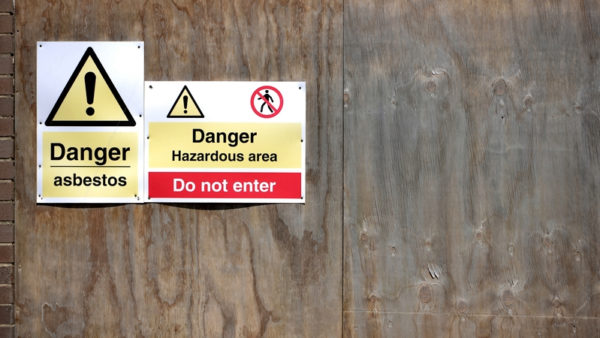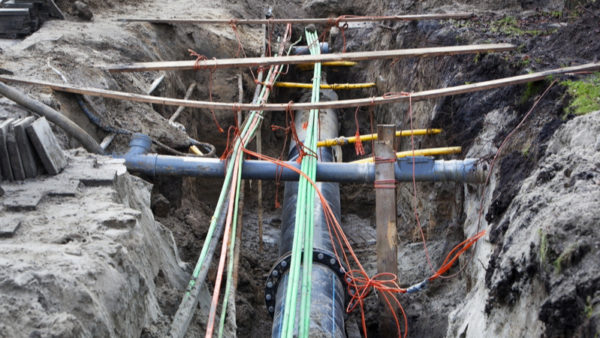A proposed change from degree apprenticeships to integrated apprenticeships could end up being detrimental to the construction sector, warns Steve Conopo. But it isn’t too late for construction firms to have a say.

The construction sector has excellent degree apprenticeship occupational standards. But that could now be under threat.
The CIOB is an official apprenticeship end-point assessment organisation. The current assessment process reassures employers that an apprenticeship certificate is an excellent measurement of an employee’s competences in the workplace. It also gives confidence that all assessments have been independently delivered to mitigate against any potential conflict of interests.
The process as it stands is under review by the Institute for Apprenticeships and Technical Education (IfATE), following a consultation with stakeholders. Construction employers might not have taken part or even been aware of the consultation.
But new proposals have emerged from the consultation, which arise from failings in other sectors. The proposed changes would mean degree apprenticeships become ‘integrated degree apprenticeships’ when there’s an update to the construction occupational standards and assessment plans.
What is an integrated degree apprenticeship?
An integrated degree apprenticeship is where assessment is delivered throughout the apprenticeship and the university delivers both the on-programme training and the competency-based assessment. Under degree apprenticeships, the degree is delivered by the university, but the competency-based assessment is delivered at the end of the apprenticeship (end-point assessment) by an independent organisation like CIOB. This aligns with the way end-point assessment is delivered for all other apprenticeships from Levels 2 up to Level 6.
Why the sudden change?
Simply put, too many apprentices are leaving their degree-level apprenticeship in sectors outside of construction without completing their end-point assessment. Nonetheless, they still achieve the mandated qualification, the degree. This undoubtedly means work-based competence skills and behaviours are not being measured, but apprentices still gain a degree.
Moreover, the university delivering the apprenticeship cannot claim an apprenticeship completion, which affects achievement statistics, or 20% of the funding allocated to the standard.
Non-completion of the end-point assessment for degree apprenticeships is not a problem in the construction sector. This is because apprentices and their employers put more emphasis and value on the competency-based end-point assessment and the value of the apprenticeship certificate.
This means the proposed changes could undermine something that hasn’t yet matured or been measured with regards to achievement rates.
Why CIOB opposes integrated degree apprenticeships
CIOB aims to raise the profile of apprenticeships and provide reassurance to employers that apprenticeship reform and end-point assessment is a positive change.
The institute’s delivery of end-point assessment is a guarantee that apprentices will receive impartial, robust and fair competence-based assessment. It means they can hit the ground running from day one of post-apprenticeship employment.
CIOB does not support a change from degree apprenticeships to integrated degree apprenticeships and is the voice of employers that have expressed their concerns. It believes a change for the following construction standards would be a backward step for apprenticeships and not align to the 2012 Richards Review of apprenticeships and the way apprenticeships at Levels 2 up to Level 6 are assessed:
- Level 6 Construction Site Management Degree apprenticeship
- Level 6 Construction Quantity Surveyor Degree apprenticeship
- Level 6 Design and Construction Management Degree apprenticeship.
Another consideration is quality assurance. Ofqual (The Office of Qualifications and Examinations Regulation) provides quality assurance for degree apprenticeship end-point assessment organisations. As a result, they have robust systems and operations in place for apprenticeship quality assurance.
Have your say
The good news is, it’s not too late to voice your opinion. Employers still have a choice to make. Do they want degree apprenticeships to follow the assessment process of other apprenticeships, aligning from Levels 2 up to Level 6? Or do they want to change to integrated degree apprenticeships, with a standalone assessment process?
Construction employers have control over the development of and changes to apprenticeships, and they have the responsibility to endorse any changes before they are implemented. The role of universities and end-point assessment organisations is to guide employers in making the right choice.
But why should the construction industry be forced to take the route of other sectors which are failing their apprentices? Why not look to the construction sector and adopt its successes? A move to integrated degree apprenticeships effectively decouples them from professional body membership, which was a key aim of the Richards Review. This cannot be achieved by an integrated degree apprenticeship.
If you are concerned about potential changes and think CIOB has a major part to play in maintaining the quality of construction apprenticeships, please let us know your thoughts by emailing [email protected] and completing our survey.
Steve Conopo is apprenticeship manager at CIOB.










